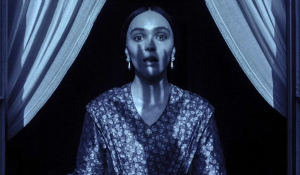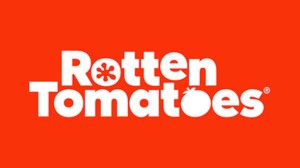A study performed by review aggregator Rotten Tomatoes using data collected from its own Tomatometer reveals only 10% of remakes and reboots critically outperform their predecessors.
Videos by ComicBook.com
The analysis uses data compiled from more than 400 remakes and reboots released between 1978 and 2018, revealing an average of 47 percent for remakes and 53 percent for reboots. “Originals” typically fare better with critics at an average of 81 percent for movies that were remade and 69 percent for movies that were rebooted.
Only 10 percent, or 40 movies, were better received than the originals.
The data set and criteria used in the study is as follows:
What is a remake? – It is a movie with the same story and title (for the most part) as an earlier film.
What is a reboot? – A reboot is a new start to an already created fictional world. For example, 2009’s Star Trek is a reboot because it features familiar characters in a brand new adventure. It’s not the same story twice.
374 Remakes and 43 Reboots
306 remakes and their originals both had Tomatometer scores
68 remakes had Tomatometer scores while their originals didn’t (they weren’t included in the first three facts)
Rotten Tomatoes‘ data shows a 34 percent difference between remakes (47 percent) and originals (81 percent), an average dragged down by 84 films that carry at least a 50 percent Tomatometer difference between the remake and the original. Used as examples are 1984’s A Nightmare on Elm Street (94 percent) and its 2010 remake (15 percent), and 1987’s The Stepfather (86 percent) and its 2009 remake (11 percent).
Just 33 percent of remakes boast a “fresh” rating, including 2006’s Martin Scorsese-directed The Departed, 2007’s Russell Crowe and Christian Bale-led 3:10 to Yuma, Disney’s 2017 live-action reimagining of Beauty and the Beast and 2018’s Oscars heavyweight contender A Star Is Born.
The 40 remakes represented by stronger Tomatometer scores than their predecessors include 2001’s star studded Ocean’s Eleven (82 percent, compared to the 52 percent of 1960’s Ocean’s 11 that starred the Rat Pack), 2011’s True Grit (96 percent, compared to the 88 percent earned by the 1969 John Wayne vehicle), and 2016’s The Jungle Book (95 percent, compared to the 86 percent held by the 1967 wholly animated version).
2005 and 2006 each saw nearly 20 remakes and reboots reach the big screen, including 2005’s Batman Begins, War of the Worlds and King Kong, and 2006’s Superman Returns and James Bond reboot Casino Royale. Horror — the most remade genre, averaging 39 percent — saw redos for The Fog, House of Wax, Dark Water and The Amityville Horror, all in 2005 and all being branded “rotten.”
Of the four decades included in the data, the 1980s have the highest average of best-reviewed movies at 57 percent, topping the 1990s (49 percent), the 2000s (41 percent) and the 2010s (45 percent as of 2019).
The ’80s produced remakes of The Thing, The Fly, Scarface and Dirty Rotten Scoundrels, each classified as “fresh.” Remakes of 1980s films, however, averaged out at 37 percent “rotten.”
On average, reboots (53 percent) tend to be better received than remakes (47 percent); i.e., a reboot is a start-from-scratch approach that restarts an established series with new actors and a new continuity, versus a remake that redoes the same plot of a previous film: Batman Begins and The Amazing Spider-Man are reboots, while A Star Is Born and the upcoming The Lion King are remakes.
When rebooting, films have an average 16 percent difference between their predecessors; with remakes, there’s a 34 percent difference.
Disney, who is mining their catalogue typically for animated-to-live-action re-imaginings, has had missteps when remaking — The Shaggy Dog, Flubber, both “rotten” — but has been on a “fresh” streak since 2015’s Cinderella (84 percent).
Since the trend started with 2010’s Alice in Wonderland (51 percent), Disney has averaged 73 percent with its redos, a line soon to expand to include Dumbo, Aladdin and Lion King.
In 90 years of Best Picture, only three remakes —1935’s The Mutiny on the Bounty, 1959’s Ben-Hur and 2006’s The Departed — have won the award, meaning just 3.2 percent of Best Picture winners are second tries at past films.





